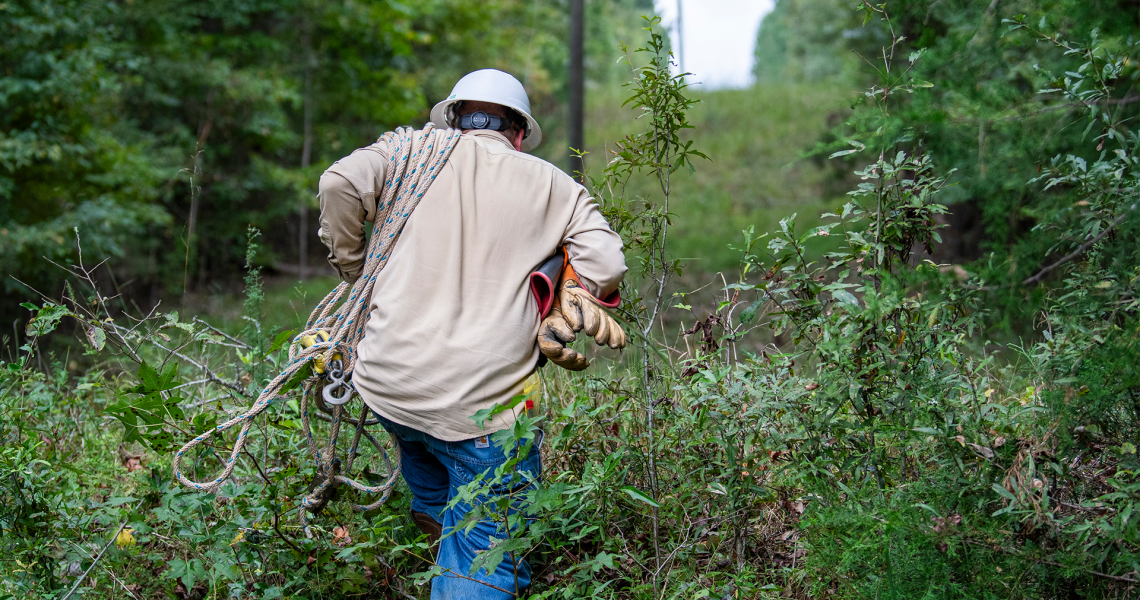Photo by Erin P. Nichols
South Carolina’s electric cooperatives spent two weeks restoring power to the almost 425,000 members who were knocked offline when Hurricane Helene pummeled the Palmetto State on Sept. 27.
Helene proved to be the deadliest and most destructive storm in living memory for the western half of South Carolina, snapping more than 5,000 co-op power poles and toppling the transmission lines that serve more than 80 co-op substations.
The storm killed at least 41 people in South Carolina and damaged more than 3,500 homes across 23 counties — at least 200 of which were destroyed.
The co-ops responded by mustering one of the largest power restoration efforts in state history, bringing in more than 3,400 mutual aid line workers from at least 24 states and the 11 S.C. co-ops that finished their restoration efforts early.
The job before them was daunting. Thousands of downed trees and debris blocked hundreds of roads, forcing co-op crews and assessors to cut their way in and out of damaged areas. In the Upstate and along South Carolina’s western border, long stretches of poles and wire were damaged beyond repair and had to be rebuilt.
Crews worked 16-hour shifts for days on end. Many came home at night to sleep in houses without power or on cots set up by host co-ops in makeshift “tent cities,” mobile sleeping trailers, churches and office buildings.
Among the helpers were crews from Berkeley Electric, Black River Electric, Coastal Electric, Edisto Electric, Fairfield Electric, Horry Electric, Lynches River Electric, Palmetto Electric, Santee Electric, Tri-County Electric and York Electric Cooperative. Crews from Santee Cooper and states as far away as California and Maine helped as well.
Central Electric Power Cooperative and New Horizon Electric Cooperative hustled to get transmission service back online within a week. The cooperatives' materials supplier, CEEUS, scrambled to send out 30 tractor trailer loads of supplies and equipment a day — a volume of material that rivals the cooperatives' response to Hurricane Hugo in 1989.
The mutual aid didn’t stop with line crews. Co-ops that fared better from Helene also loaned out communicators, engineers, IT staff, member service representatives and other staff to help the co-ops that were stretched thin. Co-op retirees also volunteered their expertise to lighten the load.
“I’m beyond proud of everyone who sacrificed time with their families to work long hours in tough conditions to restore power to their fellow South Carolinians,” said Mike Couick, CEO of the Electric Cooperatives of South Carolina. “Hurricane Helene was one of the greatest challenges our state has faced in decades, and our people rose to meet it head-on.”

